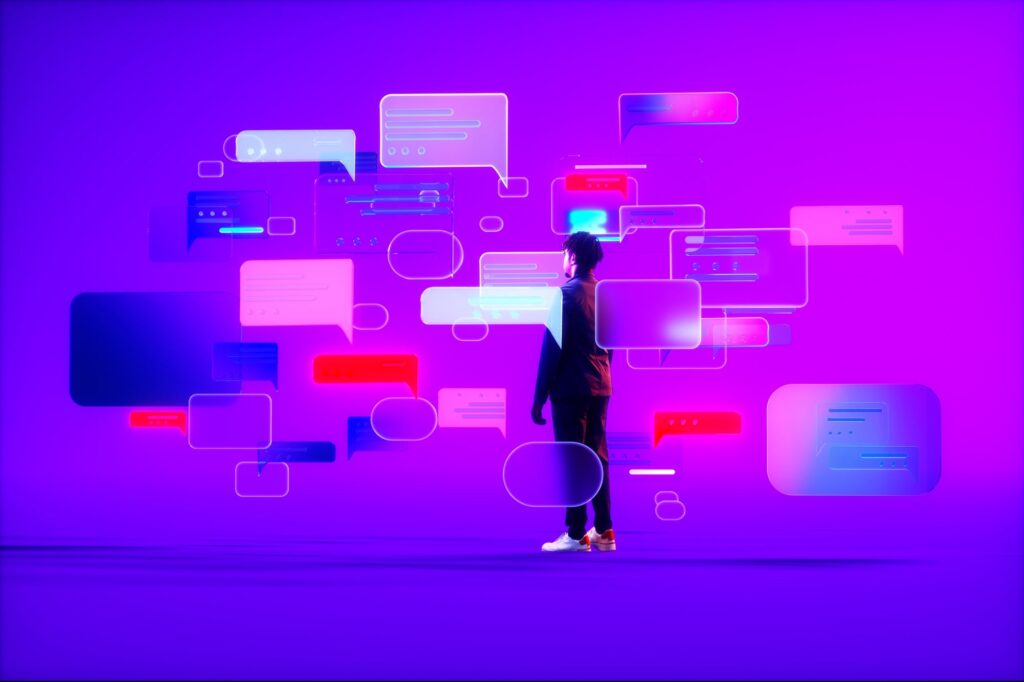Opinions expressed by Entrepreneur contributors are their very own.
By now, most entrepreneurs have experimented with ChatGPT. You’ve got most likely requested it to write down a weblog define, draft a couple of electronic mail topic strains or generate some Instagram captions. However in case you’re nonetheless treating it like a merchandising machine — insert immediate, get content material — you are leaving a ton of worth on the desk.
The actual energy comes from what we name “immediate conversations”: a deliberate, iterative back-and-forth between you and the AI, the place every response informs your subsequent prompt. It isn’t about asking for the proper output upfront. It is about collaborating with ChatGPT to create one thing higher, sooner — and infrequently, extra unique than you can’ve provide you with in isolation.
Here is easy methods to make that shift.
Associated: 3 Tips to Know Before Using ChatGPT for Marketing
Suppose in levels, not prompts
As a substitute of anticipating one immediate to provide you a completed piece of content, break your course of into phases: ideation, construction, drafting and refinement. ChatGPT shines when it has context, and a dialog offers it precisely that.
To illustrate you are writing a weblog submit on cybersecurity for small companies. Do not simply immediate: “Write a 1,000-word weblog submit on cybersecurity suggestions for small companies.” That’ll get you one thing generic.
As a substitute:
-
Begin with a task and final result immediate: “Act as a content material strategist. Give me 5 well timed weblog submit angles on cybersecurity for small companies.”
-
Comply with up: “Take the second thought and create a blog define with an intro, three major sections and a conclusion.”
-
Draft in items: “Now write the intro in a conversational tone. Point out a current information occasion that makes this subject pressing.”
Every step improves high quality and offers you management. Plus, it lets you appropriate course if the AI veers too far out of your intent early on.
Refine with micro-prompts
Most entrepreneurs underuse ChatGPT’s capacity to revise its personal work. Do not accept a “meh” paragraph. Inform it what to repair.
-
“Make this paragraph extra concise.”
-
“Add a metaphor to elucidate this concept.”
-
“Rewrite within the tone of a Seth Godin weblog submit.”
You are not beginning over; you are modifying collaboratively. That is the place the “dialog” actually kicks in — and the place nuance, type and depth begin to emerge. You will usually be shocked by how effectively ChatGPT responds to inventive nudges.
Associated: 5 Mistakes I Learned to Avoid When Working With ChatGPT
Use it for strategic considering, too
Immediate conversations aren’t only for content material execution. They’re nice for upstream considering — like naming campaigns, testing messaging or exploring buyer personas.
For instance:
ChatGPT will do the heavy lifting, and you will spot concepts you hadn’t thought of. You’ll be able to even ask it to role-play as a skeptical buyer or a competitor, serving to you pressure-test your messaging earlier than going to market.
Construct your immediate stack
As soon as you discover sequences that work (e.g., for writing case research, newsletters or touchdown pages), save them. Create a immediate stack: your personal playbook of step-by-step conversations that persistently produce outcomes.
This protects time and improves high quality throughout your group. Over time, you may develop reusable frameworks for various content material varieties, which reduces friction when onboarding new group members or scaling campaigns.
Watch out for blind spots
As highly effective as immediate conversations are, they arrive with caveats. ChatGPT’s job is to be useful — even when which means inventing info that sounds proper however is not. It’s going to confidently cite faux statistics, create imaginary quotes or attribute actual quotes to the mistaken individuals. It isn’t attempting to deceive you; it is attempting to please you.
At all times double-check information, names and sources. If ChatGPT offers you a quote, Google it. If it cites a research, search for the unique. Deal with the AI’s content material as a primary draft that requires human judgment and verification.
One other pitfall: the language itself. ChatGPT has sure go-to phrases that immediately sign “AI-generated.” You’ve got seen them:
-
“In at the moment’s fast-paced digital world…”
-
“Unlock the ability of [insert feature here]…”
-
“Whether or not you are a small enterprise or a big enterprise…”
These strains really feel stale and generic as a result of they’re. Savvy readers (and editors) can spot them a mile away. Practice your self to acknowledge this filler language — and ask ChatGPT to rewrite with extra specificity and originality:
-
“Keep away from clichés. Rewrite this intro with a punchy, surprising opening.”
-
“Substitute this generic phrase with one thing vivid or visible.”
You’ll be able to even paste in your model’s current content material and immediate: “Match this tone and keep away from generic advertising language.”
One other tactic is to proactively set constraints. For example, inform ChatGPT: “Keep away from utilizing startup clichés or overused buzzwords.” You may also ask it to research its personal writing: “Which phrases on this paragraph may sound too generic or robotic?” It is surprisingly self-aware when requested.
AI can get you 80% of the way in which, however that final 20% — the polish, the precision, the persona — comes from you.
The entrepreneurs getting probably the most out of ChatGPT aren’t those that know the cleverest single prompts. They’re those who deal with it like a junior collaborator: giving it steerage, pushing it to iterate and constructing on its outputs.
Immediate conversations shift your mindset from “asking” to “shaping.” And that makes all of the distinction.
Begin a wiser dialog. Your content material will present it.
